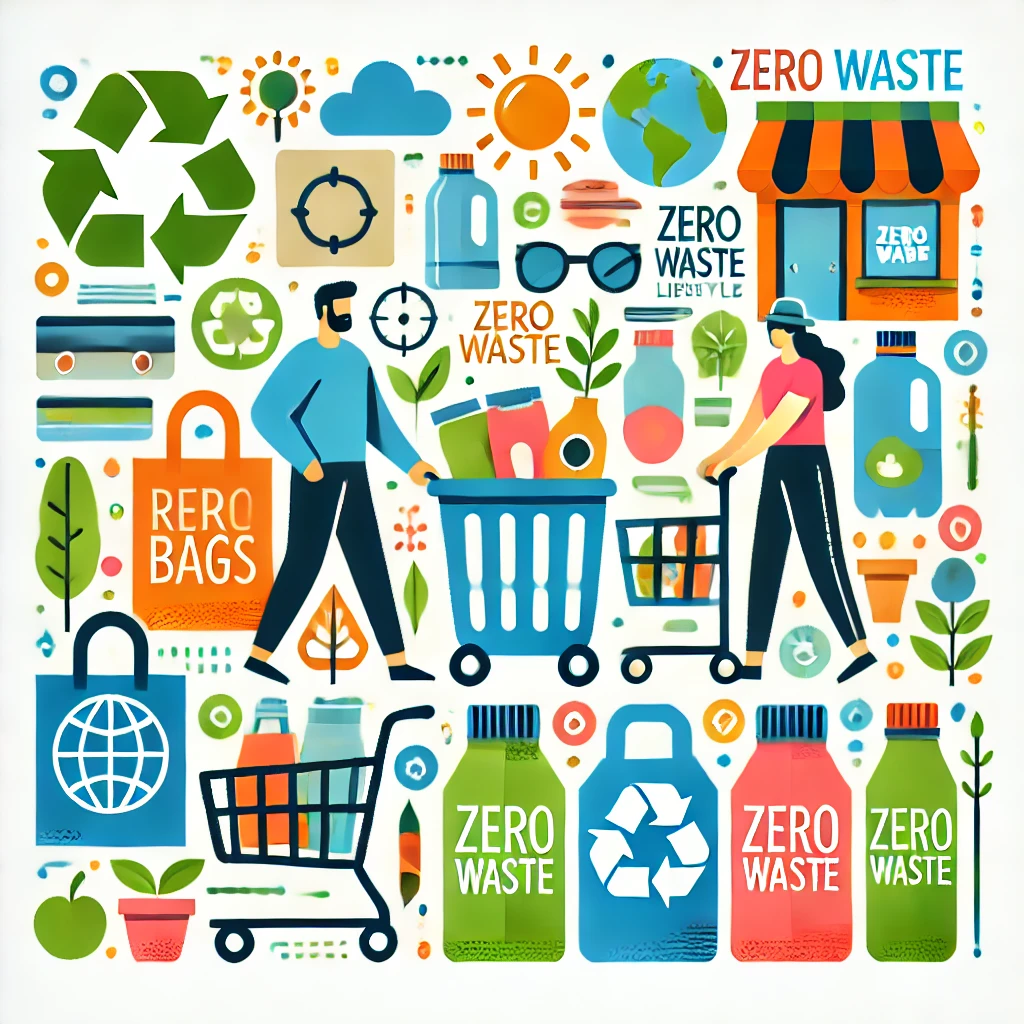How to Practice Zero Waste: First Steps Toward a Sustainable Life
In a world where environmental concerns are becoming more urgent, adopting a zero waste lifestyle is an impactful way to reduce your ecological footprint. Zero waste is about minimizing the amount of trash we generate and finding ways to reuse or recycle as much as possible. By incorporating small, practical changes into our daily routines, we can take meaningful steps toward a more sustainable future. In this blog post, we'll explore how to implement zero waste practices in everyday life and share tips on reducing waste and protecting the environment.

1. What is Zero Waste?
The concept of zero waste aims to eliminate waste through a combination of reducing consumption, reusing products, and recycling materials. The goal is to send as little as possible to landfills and incinerators by choosing more sustainable alternatives.
Key Principles of Zero Waste:
- Refuse what you don’t need.
- Reduce what you do need.
- Reuse what you can.
- Recycle what you can’t reuse.
- Rot the rest (compost organic waste).
2. Practical Tips for Reducing Waste
2.1. Bring Reusable Bags and Containers
Avoid single-use plastic bags by bringing your own reusable shopping bags, containers, and produce bags when shopping. Many stores now offer discounts for customers who bring their own bags.
2.2. Opt for Package-Free Products
When possible, buy products in bulk or choose items that come without excess packaging. Many zero-waste stores offer package-free options for common household products like soap, shampoo, and grains.
2.3. Compost Organic Waste
Instead of throwing away food scraps, set up a small compost bin at home. Composting turns organic waste into nutrient-rich soil for your garden or plants, reducing the amount of trash sent to landfills.
2.4. Use Reusable Water Bottles and Coffee Cups
Single-use plastic bottles and coffee cups contribute significantly to environmental pollution. Invest in a high-quality reusable water bottle and coffee cup to reduce waste when you’re on the go.
2.5. Say No to Disposables
Whenever possible, refuse disposable items like plastic straws, cutlery, and napkins. Many eco-friendly alternatives, such as bamboo cutlery or stainless steel straws, are available and can be used multiple times.
3. Long-Term Benefits of Zero Waste
By practicing zero waste, you’ll not only help the environment but also:
- Save money: By buying less and reusing more, you can cut down on unnecessary expenses.
- Improve health: Avoiding processed and packaged food often leads to healthier, more organic eating habits.
- Promote mindfulness: Zero waste living encourages intentionality in consumption, making you more aware of your impact on the environment.
Conclusion: Take the First Step
Adopting a zero-waste lifestyle may seem daunting, but by making small, conscious choices every day, anyone can make a positive impact. Start with one or two changes, like bringing your own reusable bags or starting a compost bin, and build from there. Every small action counts when it comes to creating a more sustainable world.